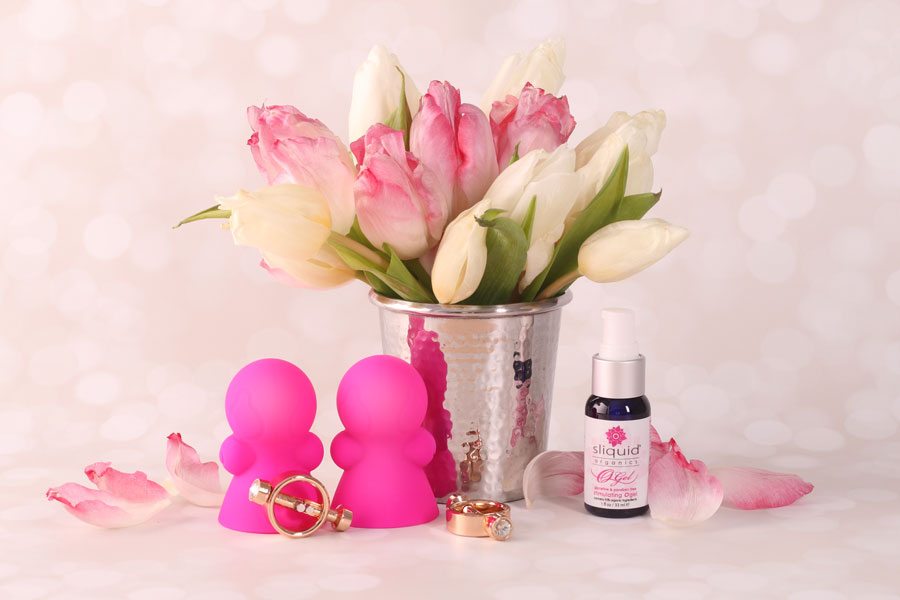Trusted for 25+ Years
Allergies To Lubricant Ingredients

Dr. Lisa Lawless, CEO of Holistic Wisdom
Clinical Psychotherapist: Relationship & Sexual Health Expert
 Allergies & Sensitivities
Allergies & Sensitivities
While we carry only the best lubricants available and strive to have natural, organic ingredients, that does not mean that all of our lubricants work for everyone. Everyone has different health concerns, and some ingredients, while healthy in general, may not be suitable for some people.
We believe in transparency, and that is why we list the ingredients on our lubricants. We understand that just because our lubricants are paraben free and have appropriate pH and osmolality levels, you may have allergy or sensitivity concerns that apply to even the most natural ingredients.
Keep in mind that even if you have used a lubricant before, you can develop health conditions that may make a lubricant no longer a good option for you. Examples of health conditions that can cause such changes include cancer treatments, autoimmune disease, pregnancy, menopausal hormonal fluctuations, and other factors.
Patch Tests
We recommend doing a small skin patch test on your wrist before using a new lubricant for the first time to make sure that you do not have a sensitivity to any of the ingredients. If after 24 hours you do not have any reaction, you most likely will not have any issues using them on your genitals and other areas of your body.
Additional Causes Of Adverse Reactions
Rashes can be caused by anything from something as simple as an allergy, contact dermatitis, histamine reaction, or even something more serious like an STD. Many things can irritate the skin, and it may be necessary to assess further what has caused it so that its use can be discontinued or addressed. If you have an adverse reaction, discontinue use immediately and contact your health provider. Discuss what ingredient or other contributors (pH level, osmolality, etc.) of the lubricant may have contributed to the adverse reaction to avoid such responses in the future.
Ruling Out Friction
Keep in mind that when using lubricants, adverse reactions may also be caused by mere friction from sexual stimulation provided by a penis, fingers, or sex toy. Many people overlook this simple cause of skin irritation, which may be something to consider. Friction from sexual activity, whether skin-to-skin contact or a sex toy, can cause temporary histamine reactions, especially for sensitive skin or those with autoimmune disorders.
Latex Allergies
Another possibility if you are using a sex toy is that a rash could be caused by the sex toy or condom material which is especially common with latex. In addition, if you are using a lubricant with a sex toy, you may be causing a chemical reaction with the sex toy material. For example, some silicone lubricants should not be used with silicone sex toys.
Detergents & Hygiene Products
Sensitivities can also be caused by something else altogether. For example, laundry detergent, soap, hygiene products, etc., that are applied to the skin along with friction of any type could exacerbate a mild allergic reaction. Often combination effects are overlooked, and you might want to explore that possibility.
New Allergies Or Sensitivities
Additionally, a product that you had no problem with before may be something that you are sensitive to now due to an allergy change. The body can develop allergies and sensitivities that were dormant before, so looking at things you may not have had sensitivity to earlier may be something to consider. It is not uncommon for the immune system to have different reactions to things as we age because of our ever-changing body chemistry and health.
In Closing
Always listen to your body. If something feels uncomfortable, stop using it right away. Sexual lubricants and sex toys are not one size fits all. Just because a product gets excellent reviews or is made with high-quality ingredients or materials does not mean it is right for you. For more information, make sure to educate yourself about the different factors that impact choosing the right lubricant for you by reading our helpful education guides:



 Allergies & Sensitivities
Allergies & Sensitivities

